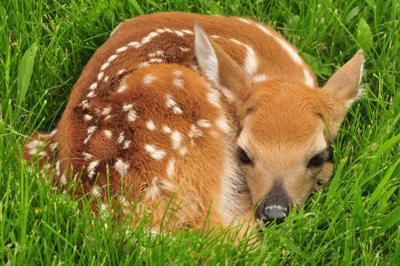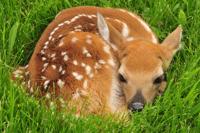DELAWARE- With wildlife activity peaking in Delaware, DNREC is reminding visitors and locals alike: If you encounter young animals, especially deer fawns, seemingly alone in nature, do not interfere. These animals often appear abandoned but typically are not, as their mothers are usually not far away, watching or foraging.
This common misconception leads to well-intentioned but potentially harmful interventions says Sam Millman, Delaware deer biologist with the DNREC Division of Fish and Wildlife,
"Removing fawns from the wild can be stressful for the mother and be detrimental to the future of the young deer, since they cannot learn directly from their parent on how to survive in their natural environment."
DNREC strongly discourages the public from touching or removing wildlife from their natural settings. During spring and summer months, rabies, which is occasionally found in wildlife, is more likely to be transmitted to humans and pets due to our increase in outdoor activities during this time of year.
Additionally, keeping pets away from wild animals is crucial as they can carry fleas and ticks, or diseases such as rabies. For those who encounter what they believe may be an orphaned or injured animal, DNREC suggests observing from a distance to determine if the parent returns, a process that could take several hours.
If you are certain an animal is injured or orphaned, or if its parent has died, contact the Delaware Council of Wildlife Rehabilitators and Educators for guidance. The DNREC Wildlife Section is also available for assistance at 302-739-9912, or toll-free after hours and on weekends at 800-523-3336.







